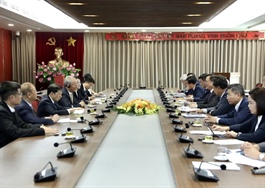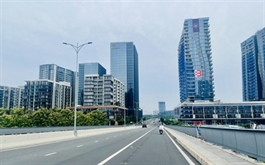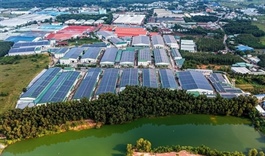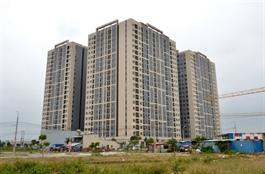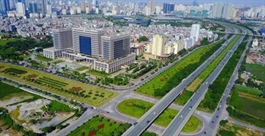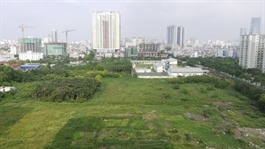Another push for real estate bounce
Another push for real estate bounce
Vietnam’s government aims to boost its real estate sector by easing bank credit and tackling legal, land, and administrative hurdles to foster market growth.

Prime Minister Pham Minh Chinh last week issued a dispatch on sweeping reform aimed at revitalising the country’s real estate sector. The directive is a part of a series of measures designed to encourage a safe and robust property market, which is integral to Vietnam’s broader socioeconomic objectives.
The government’s stance recognises past efforts and existing challenges in the real estate sector.
“We have seen positive shifts, particularly with the reduction of interest rates and real estate lending,” remarked the PM. “However, there is an urgent need to tackle persisting issues surrounding legalities, land allocation, pricing, and administrative processes.”
Specifically, the PM has directed the State Bank of Vietnam (SBV) to guide commercial banks in bolstering real estate credit lines, simplifying lending processes, and possibly reducing interest rates.
“By facilitating smoother credit access for both developers and buyers, we anticipate a more dynamic market and a spur in overall growth,” explained PM Chinh.
Under the new directive, the SBV and the Ministry of Construction (MoC) are collaborating to refine the credit programme for social housing, aiming to expedite project approvals and funding disbursements.
Elsewhere, in last week’s report from the MoC, a striking increase in credit towards real estate businesses in Vietnam has emerged. By August 31, the sector’s outstanding loans soared to approximately $41.6 billion, a rise of 23.3 per cent since late 2022.
Financial statements for Q3 reveal a robust growth in corporate real estate lending across major banks, while personal home loans show sluggish expansion.
At VPBank, loans for real estate businesses jumped by 45 per cent to about $4.14 billion, representing 18.83 per cent of its total lending. In contrast, VPBank’s personal loans for housing grew by just 6.6 per cent.
Techcombank also saw a significant rise in real estate business lending, which increased by 47.2 per cent and accounted for 34.63 per cent of its total credit balance. Personal loans at the bank, however, dropped by 9.2 per cent.
MSB mirrored this trend, with a 20 per cent hike in real estate business lending against a modest 5.8 per cent increase in personal loans.
Hanoi Party Committee Secretary Dinh Tien Dung last week also identified critical challenges in credit access and proposed solutions to boost the real estate sector. He focused on the disparity between bank liquidity and the financial needs of businesses.
“Banks have excess liquidity, but businesses are starved of cash, making access to capital challenging. Resolving this credit imbalance is crucial for revitalising production and stimulating the stagnant real estate sector,” Dung said.
He also highlighted that over 700 real estate projects in Hanoi have been delayed, some for up to 20 years, causing public unrest and impacting urban security.
The city’s response, involving the reclamation of thousands of hectares from over 100 projects for auction and tender, aims to kickstart development and restore public trust.
Michael Kokalari, economist at VinaCapital, believes that Vietnam’s housing sector is grappling with a significant mismatch: the burgeoning middle class’s need for affordable homes is rising, but the production of new housing units remains critically low. “Central to this impasse is the nation’s cumbersome zoning and approval processes. These procedures have become increasingly mired in complex government dynamics, hindering the development of more residential buildings,” Kokalari said.
Furthermore, the financing challenges for land acquisition and construction have notably slowed project developments.
“Previously high interest rates in Vietnam rendered project financing costly for developers. Compounded by difficulties in obtaining necessary government zoning and approvals, securing loans became near impossible, as banks are wary of funding projects without official sanction,” he added.
“We note that there have been some recently intensified efforts within the government to remove and reduce the obstacles developers have been facing in attaining the approvals needed to proceed with certain specific projects,” Kokalari stated.
While there is an undeniable link between property development and national economic health, the real estate sector contributes modestly to the country’s GDP, Kokalari explained.
“Consequently, the slowdown in this sector is not the principal driver of Vietnam’s GDP growth dip this year, especially considering the sector’s already sluggish pace last year,” he added. “Moreover, Vietnam’s experience contrasts with China’s, where real estate holds a far more significant share of the economy and exerts a more profound influence on national GDP growth.”




